As a new variant hits Britain, infections’ expert warns of surge in pandemic deaths
A leading infections’ expert has launched a scathing attack on the prime minister for not doing enough to protect lives after the discovery of a new Covid virus variant.
The World Health Organization named the variant Omicron, and the government said several cases had already been detected in the UK.
Dr Bharat Pankhania, a senior consultant in communicable disease control, urged the government to immunise five- to-11-year-olds immediately.
The University of Exeter academic also hinted that the Johnson administration was not following the science.
Speaking to Eastern Eye, Pankhania said, “A lot of the decisions that have been made throughout this pandemic, have been reluctant infection control measures.
“So, the evidence speaks for itself, which is control measures in the United Kingdom have always been delayed, and always been knee jerk and always been last minute because of not wanting to upset a prime ministerial view, which is he takes the easy does it. I'm a lovely, cuddly, lovable guy.
“So, if you remember, Prime Minister Johnson went around telling everyone, what's this all about? Take it on the chin and get on with it.
“What's it all about? I've been shaking hands everywhere. What's it all about? We just need to get on with it. So, he's on record for saying all those things.”
“Acting swiftly”
The health secretary, Sajid Javid, said ministers acted “swiftly” and “in a proportionate way” on the emergence of Omicron.
People arriving in the UK must take PCR tests, and they have to isolate until they get a negative result.
From Tuesday (30) it became mandatory to wear masks in shops, shopping centres and public transport.
But London mayor, Sadiq Khan, remained concerned.
“I wholeheartedly welcome the government’s announcement that face coverings will now be compulsory in shops and on public transport nationwide, as they already are across the TfL network.
“But we have been operating with one hand tied behind our back without the powers to back this up with enforcement.
“This is a measure that I have long called on the government to introduce. Evidence shows that face coverings help stop the virus spreading and ensuring that this is enforced will greatly help with compliance.”
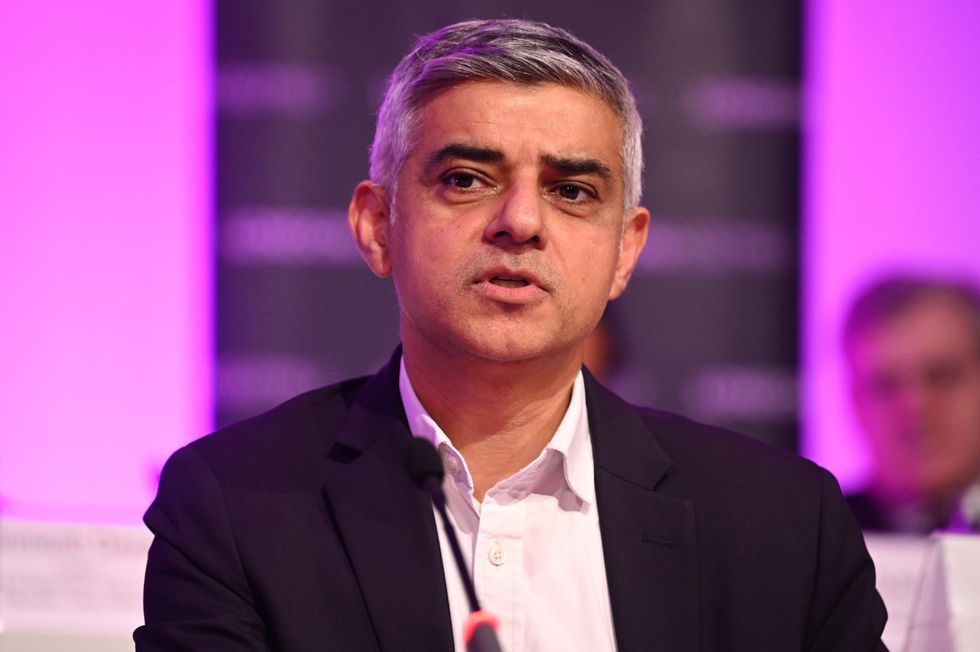
Booster jabs
The government is urging us to get booster jabs.
Speaking in the Commons on Monday (29), Javid said, “Boosters should be offered, by age group, in a descending order to protect those who are most vulnerable to the virus.
“So, priority will be given to older adults and people over 16 who are at risk.
“Severely immunosuppressed people aged 16 or above who’ve received three primary doses should now also be offered a booster dose.
“Children aged between 12 and 15 should be given a second dose, 12 weeks from the first dose.”
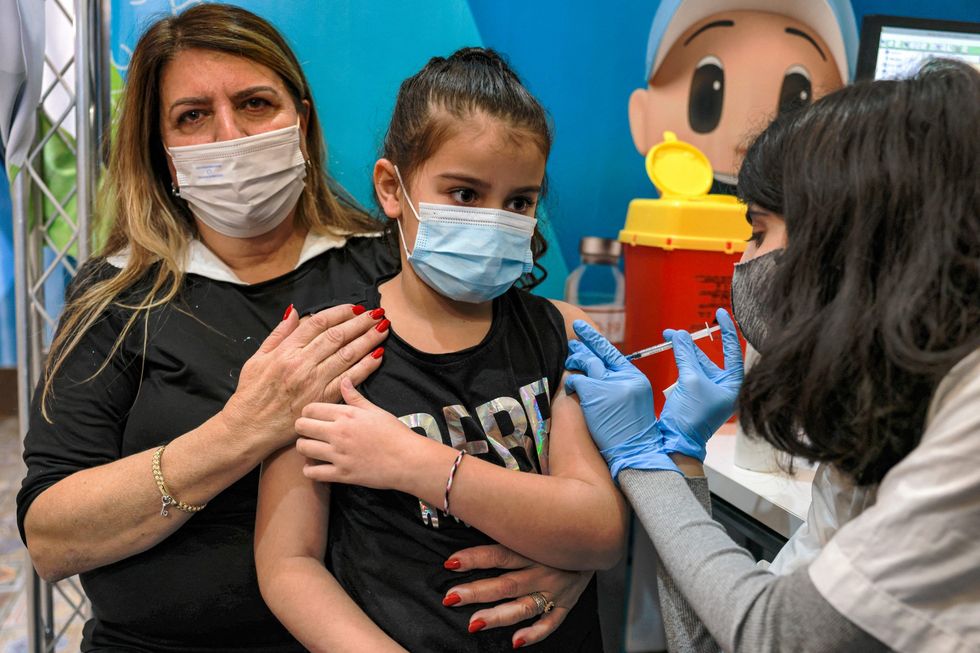
But communicable diseases expert, Dr Bharat Pankhania, told Eastern Eye that this measure should have been carried out months ago.
“We would be in a much better place had this government taken the right decision to immunise children before the summer holidays.
“They made a big error of judgement in not immunising the children when the evidence from other parts of the world from reliable countries like the United States, Canada, Israel, European Union was that we are immunising our children.
“So, that was a failure of good judgement.”
Analysis by Eastern Eye suggests that 86 per cent of all south Asians aged 18 and over have taken their first jab.
Of these 88 per cent have gone on to get their second jab, which means 76 per cent are fully protected.
Since the booster rollout only one in six (16.4 per cent) south Asians have taken up the offer.
Immunise children
But that is not what concerns Pankhania.
He warned that the consequences of not immunising children would be to spread the virus among multi-generational homes, so prevalent among south Asian communities.
“All we know that is that Plan A is not working. There is another plan, but we don't know what that other plan is.
“It has never been defined. But infection control experts, like myself have always said, it has to be a multi layered, multi-pronged approach to keeping case numbers down.
“It starts with the schools, and nothing has been done in setting to reduce case numbers in schools, and that is failing.”
The expected winter health crisis will also have an impact on controlling the disease, he said.
“Our hospitals are full because it is the autumn period now, and we need to not have any more burdens on the hospitals and the push the pull that the prime minister has his business continuity.
“But business continuity goes hand in hand with health. So, if health is okay, businesses will be okay.
“We mustn't say that there are two different issues.
“They are one and the same issue, health and economy go together. Therefore, we should work together to maintain economy and health in unison.”
Christmas fears
The fear now among businesses is that for a second Christmas trade will be hit if the government continues to impose more measures to tackle the spread of the new variant.
“The industry has already lost a staggering £80.8 billion in 12 months, the equivalent of about 220 million pounds of sales lost every day, and about 660,000 jobs,” said Tony Matharu, the founder and chair of the Central London Alliance, which is a social enterprise of 20 thousand organisations.
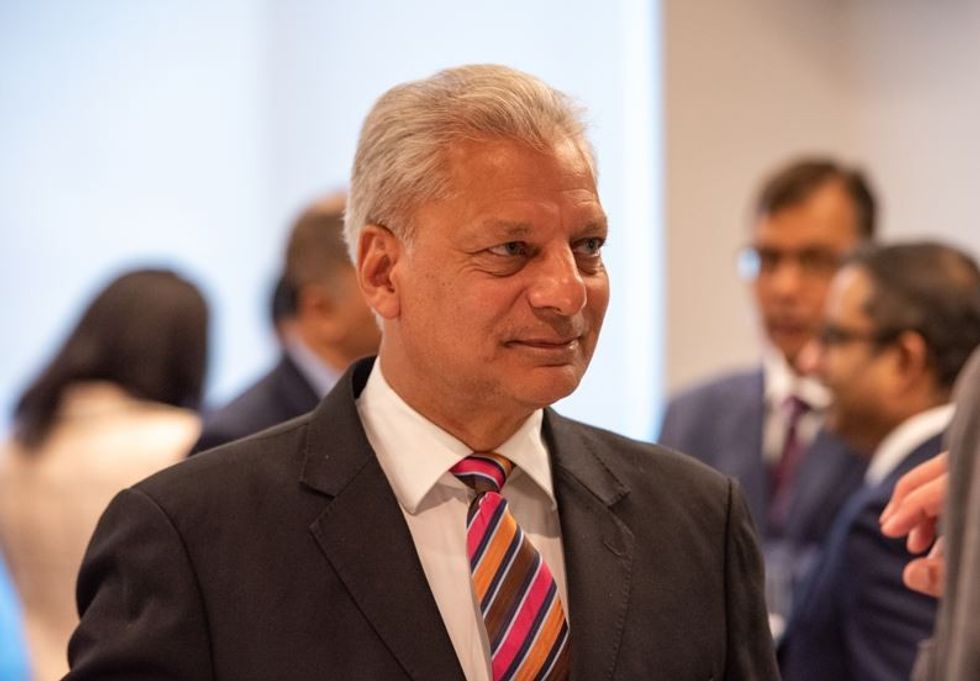
“That is very, very severe, and the reintroduction of sort of more draconian restrictions without equivalent support from the government, and we'll see hospitality businesses simply close.
“The industry is at a point of pretty much no return, on the cliff edge. In the past, Lehman Brothers and credit crunch, it was the hospitality sector that led us out.
“We can still do that, depending on the government's approach to it, and I think they should be commended for not bowing to others that want a much more rigid closure.”
The hotelier told Eastern Eye that he trusted the public to protect itself, and the important thing was to make sure business continued to function.
“The whole period of lockdown and the uncertainty, and the perception that we were in a bad place was extremely unhelpful,” said Matharu.
“The hospitality sector is absolutely dependent on mobility. We need flights to be moving, we need the Eurostar to be working, we need people to be travelling across the country and visiting and attending events.
“Over the run up to [last] Christmas, it wasn't a good place to be, but the caveat was that we looked forward to the following year at this time last year, to something better.
“The reality is that in many instances, things have improved, and are better, and I would put that down to the government's vaccination programme, which has been world leading.”
National lockdown?
Few believe there will be another national lockdown, but infectious diseases expert, Dr Bharat Pankhania, urged the government to “apply the brakes”.
“We're approaching December now, so if you apply the brakes now, then you get a better holiday festive period.
“It may already be too late if you haven't been immunised against influenza, please do so as soon as possible.
“With respect to applying the brakes, [we need] fewer activities where people meet person to person and spread infections.
“If you apply the brakes now, with respect to working from home, fewer gatherings in pubs and clubs and such like you exercise infection control with masks, etc, then that is applying the brakes.”
One of the biggest problems, said Pankhania, is that poorer nations do not have enough vaccines.
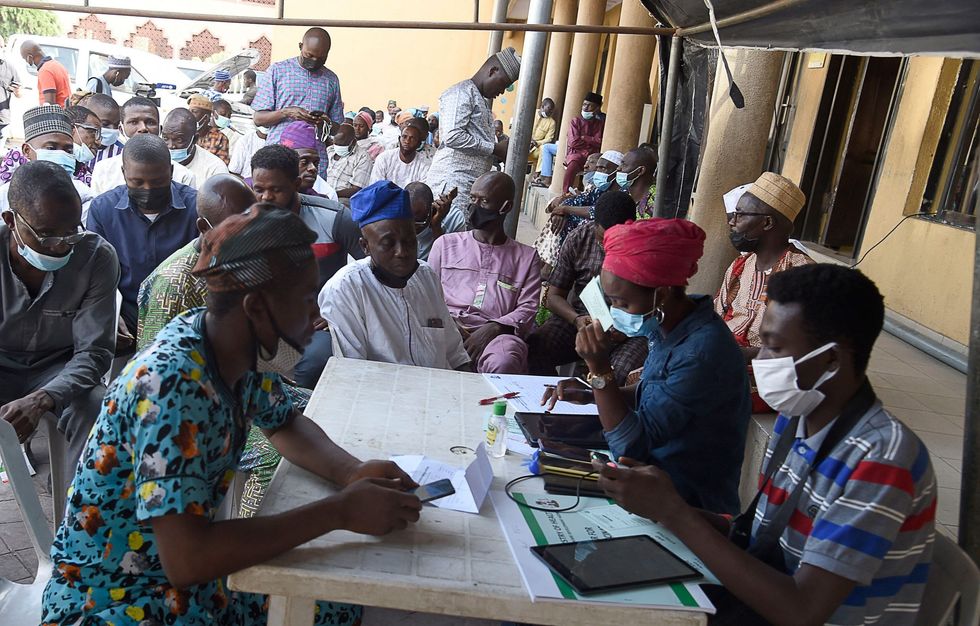
“The best thing that the rich governments ought to have done, which they never did, is to help Africa.
“If you do not help Africa suppress its infections, then unfortunately, such variants will keep on arising.
“And I don't necessarily mean Africa, I mean any impoverished poor country with poor vaccine supply.
“Infection control prevention is not a super rocket science; it is very straightforward.
“Again, the government not wanting to be unpopular, not instigated, not implemented good infection control measures, which is to immunise, wear good quality masks properly in crowded places, ventilate, avoid crowded situations, avoid transmission of infections, especially in schools’ settings.
“Those measures are unpopular, and hence they haven't been properly implemented.”
'Applying the breaks now will give us a better festive period'
Dr Bharat Phankania discusses Omicron and what and what control measures may be needed
Q: You have said previously that Omicron may not have come from South Africa, what did you mean by that?
A: It's very important to be aware that variants can arise from any part of the world. It's just that South Africa has got good genomic sequencing. So, if you think about it, it could have arisen, for example, I'm not saying it did, in a northern African country or any country, and that person brought it to South Africa, and then the South Africans got infected. Then
they genome sequenced it and reported it like they did. It doesn't necessarily mean origin is South African.
Q: So, it could have arrived in the UK before then.
A: Oh, absolutely. I'm pretty confident that by the time you realise you've got a variant on your hands, it has already spread to many parts of the world.
Q: And what should government be doing now?
A: So, the best thing that the rich governments ought to have done, which they never did, is to help Africa. And if you do not help Africa suppress its infections, then unfortunately, such variants will keep on arising. And I don't necessarily mean Africa, I mean, any impoverished poor country with poor vaccine supply. Infection control prevention is not a super rocket science, it is very straightforward. And considering it is very straightforward. Again, the government not wanting to be unpopular, has not instigated, not implemented good infection control measures, which are immunise, wear good quality masks in crowded places, ventilate, avoid crowded situations, avoid transmission of infections, especially in school settings. Those measures are unpopular, and hence they haven't been properly implemented. The one that is ever so easy to implement, and therefore, the government can show that they're doing some things to keep on talking about boosters, boosters, boosters, but actually, prevention is more than just boosters.
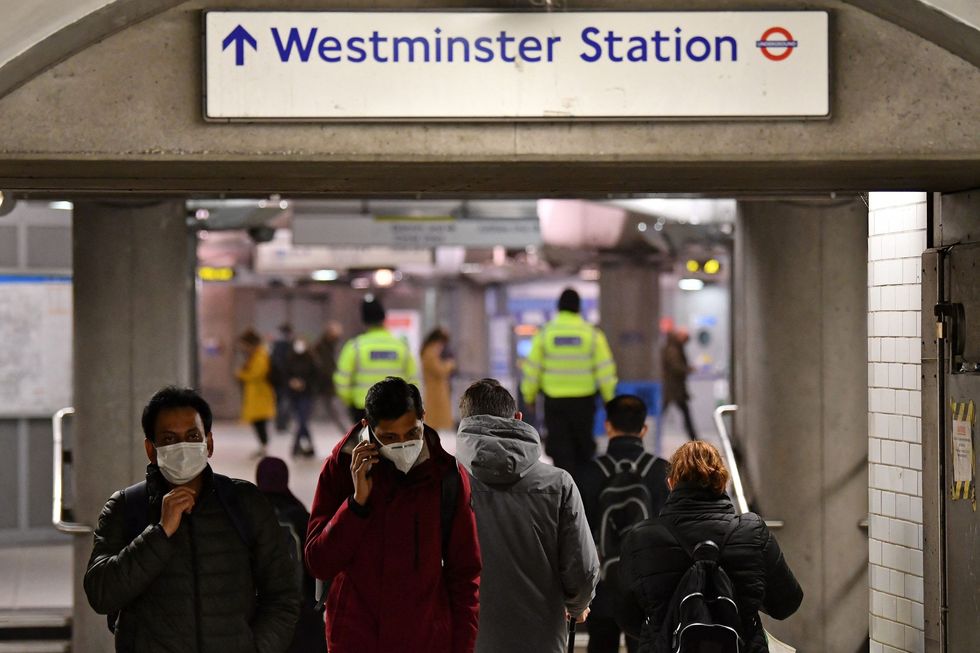
Q: How much do you then believe that the UK Government is not following the science, but actually following politics and what makes them popular?
A: Well, a lot of the decisions that have been made throughout this pandemic, have been reluctant infection control measures. So, the evidence speaks for itself, which is control measures in the United Kingdom have always been delayed, and always been knee jerk and always been last minute because of not wanting to upset a prime ministerial view, which is he takes the easy does it. I'm a lovely, cuddly, lovable guy. So, if you remember, Prime Minister Johnson went around telling everyone, what's this all about? Take it on the chin and get on with it. What's it all about? I've been shaking hands everywhere. What's it all about? We just need to get on with it. So, he's on record for saying all those things.
Q: In terms of people warning that they should have gone to Plan B weeks ago, is this what's coming home to roost?
A: No, not really. But we don't even know what Plan B is. All we know is that Plan A is not working. There is another plan, but we don't know what that other plan is. It has never been defined. But infection control experts, like myself have always said, it has to be a multi layered, multi-pronged approach to keeping case numbers down. And it starts with the schools, and nothing has been done in the schools setting to reduce case numbers in schools. And that is failing. The second bit is that our hospitals are full, because it is the autumn period now, and we need to not have any more burdens on the hospitals and the push the pull, that the prime minister has his business continuity. But business continuity goes hand in hand with health. So, if health is okay, businesses, okay, and we mustn't say that there are two different issues. They are one and the same issue, health and economy go together. Therefore, we should work together to maintain economy and health in unison.
Q: As an expert, how much do you believe that schools should be going back to online teaching, as well as higher education institutions, and working from home should be now made a priority? And that really, companies ought to start thinking for themselves whether face-to-face working is really the best thing to do?
A: So, the easier question to answer is, wherever you can avoid crowds, congested transport systems, crowded offices, etc, you should do so in order to keep case numbers down. The second bit with respect to schools is a more difficult one. But with respect to schools, we would be in a much better place had this government taken the right decision to immunise children before the summer holidays, they made a big error of judgement in not immunising the children. When the evidence from other parts of the world from reliable countries like the United States, Canada, Israel, European Union was that we are immunising our children. So that was a failure of good judgement. We are where we are now with large, uncontrollable outbreaks in school settings. The good thing is that most children get infected get better, but they do propagate, meaning they do generate cases in the older age groups. And that is unfortunate.
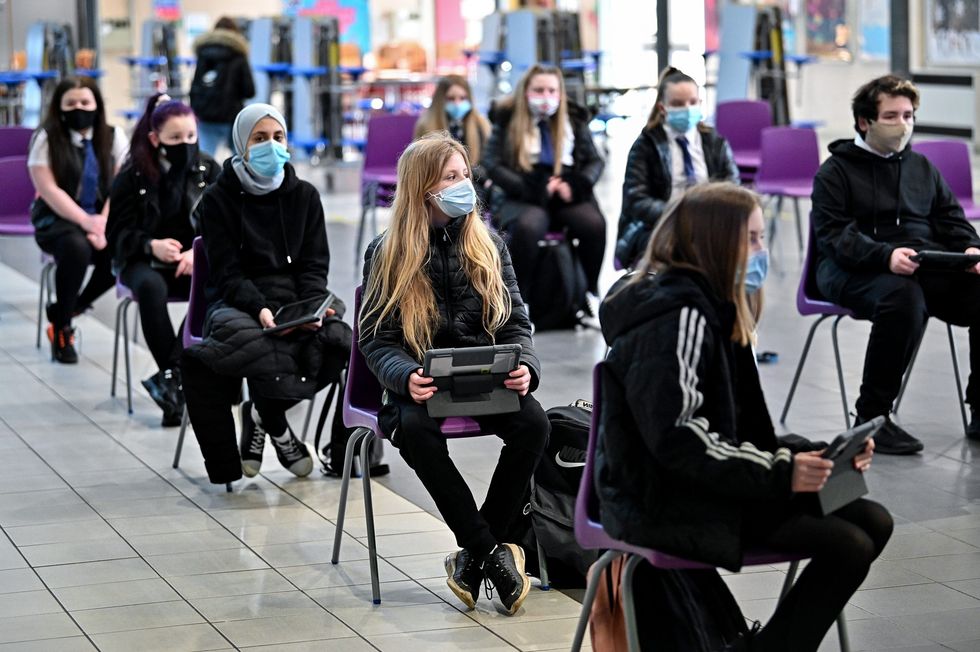
Q: And that will have an effect on multi-generational homes with south Asian communities are prevalent?
A: Indeed, and it is a risk in those multi-generational households. I said exactly this when I was asked the question, why do some places have such high rates in Wales and Scotland, considering they wear masks more so than in England? And my answer was, well, it is multifactorial, and one of the factors is poverty and multi-generational households. There is more poverty in Wales and Scotland compared to England.
Again, there is no talk in the United Kingdom of immunising five to 11 year olds, whereas the United States, Canada, European Union, Israel are racing ahead with immunising, so we need to get our house in order and immunise across all age groups and not procrastinate about this.
Q: Everybody's looking forward to Christmas and the Christmas break, families will be getting together, what is your biggest concern?
A: My biggest concern is twofold. One, a surge in cases which we cannot deal with because the hospitals are over full, and therefore people will die. And that upsets me a great deal because we are a G7 nation, we could see this coming, and we didn't do enough to stop it. The second bit, which we have not been beating the drum about which we really must, is the influenza season could take us unguarded. So, we must not drop our guard with respect to immunising ourselves against seasonal influenza, it is very important. So, the importance is multiple this year, because we don't want people to have a influenza and a coronavirus infection at the same time, because we don't know what that would look like. So, my concerns are, we need to apply the brakes. We're approaching December now. So, if you apply the brakes now, then you get a better holiday festive period. With fewer cases, we need to it may already be too late to say if you haven't been immunised against influenza, please do so as soon as possible, and take your boosters when they're when they're offered. Don't delay.
Q: What do you mean apply the brakes?
A: So, with respect to applying the brakes is fewer activities where people meet person to person and spread infections. So, if you apply the brakes now, with respect to working from home, fewer gatherings in pubs and clubs and such like you exercise infection control with masks, etc, then that is applying the brakes.
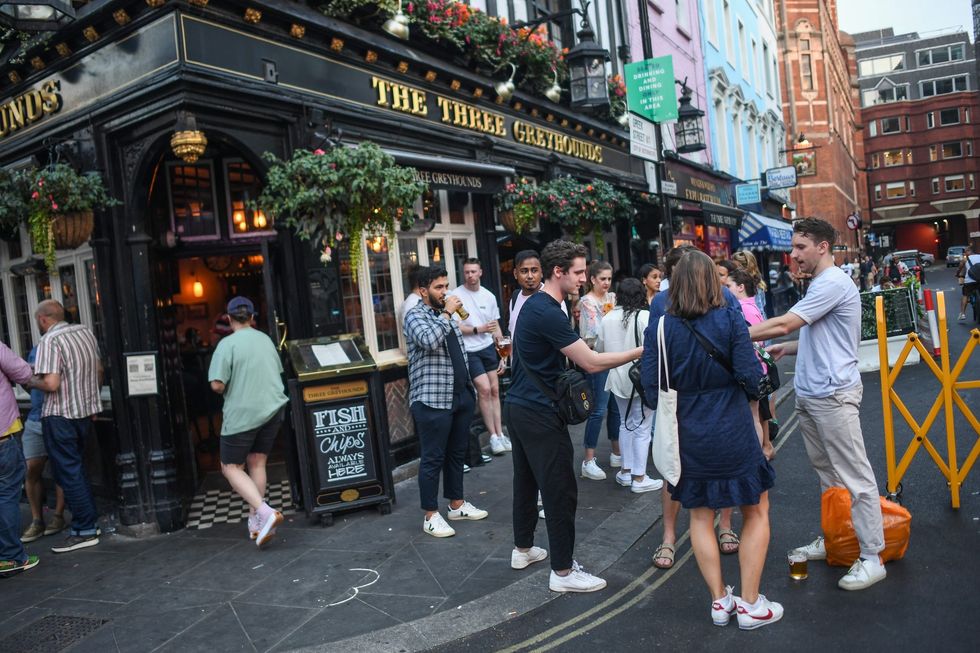
Q: Are we heading towards another lockdown?
A: No, I don't think so. And the reason why I don't think so is one, knowing how the prime minister behaves is highly unlikely to say another shutdown. The second thing, which is in our favour, is we have a highly immunised population. So, the vulnerable people in the United Kingdom are covered, and therefore I do not foresee a situation where people are dying. And we haven't got any controls.
The window is now narrowing by the hour by the day. So, the sooner you are the faster you see incubation period is 10 days. So, if you act now, that takes you to a clear you're clearing the 10th of December. And that is a good thing. So, if you maintain your breaks between now and the 15th of December, you will be in a better position come the 25th of December.


















